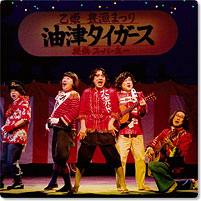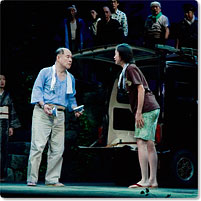
Bungakuza production
Yureru Kuruma no Oto
September, 2006 at the Kinokuniya Southern theater
Photo: Kenki Iida
© Bungakuza
Data
:
First Performance: 2006
Performance time: 2 hr.
Acts / Scenes: One act, five scenes
Cast: 11 (6 men, 5 women)



